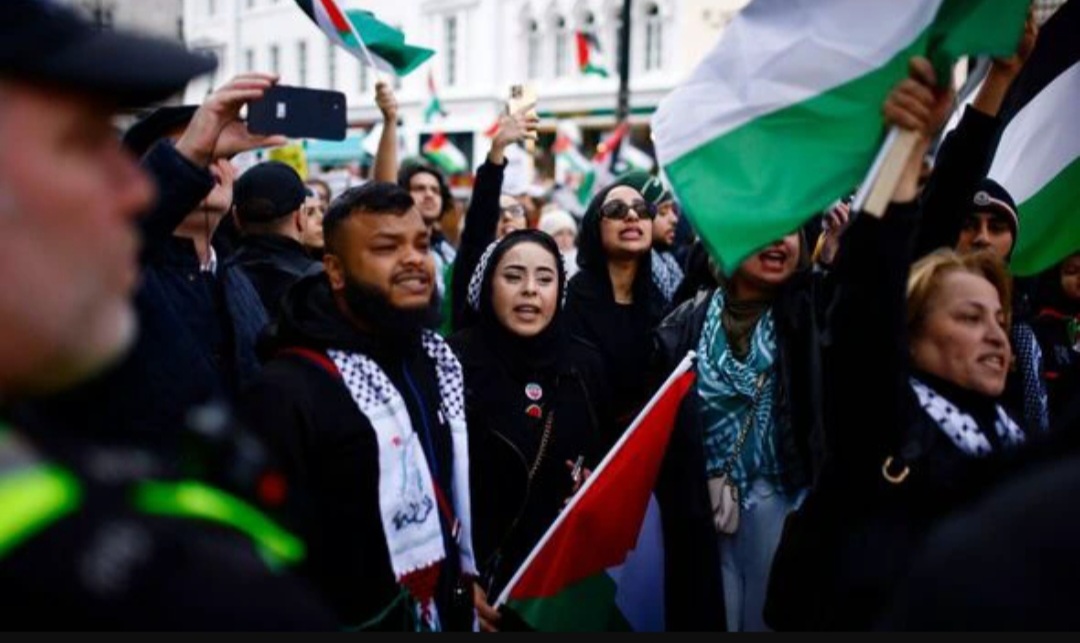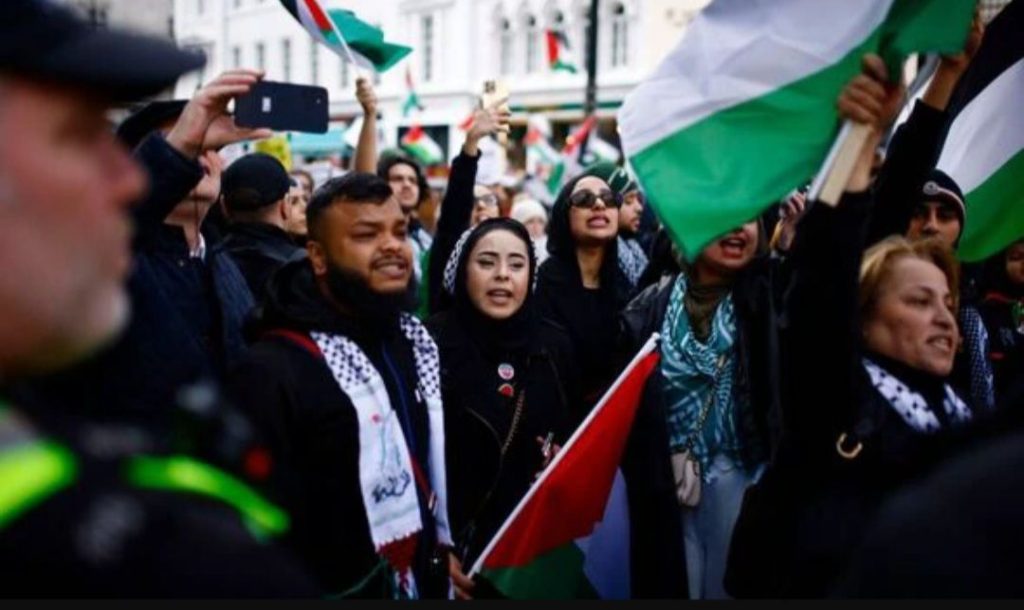
Horrifying scenes unfolded in central London on Saturday afternoon as thousands of protesters flooded the streets, chanting anti-Israel slogans and sparking widespread concern and condemnation. The demonstration, part of the 11th National March for Palestine, saw a procession of protesters moving from Russell Square to Trafalgar Square, marking a significant moment in the ongoing debate surrounding the Israel-Palestine conflict.

However, amidst the chants and fervor of the crowd, a particularly chilling moment emerged when chants of ‘long live Hamas’ echoed through the streets. The ambiguous nature of this chant immediately raised questions and drew attention from both spectators and authorities.
Videos circulating on social media captured the alarming moment, showing protesters brandishing Palestinian flags and banners as they chanted the divisive slogan. The context and meaning behind the chant remained unclear, leaving observers troubled and seeking answers.
While the majority of the demonstration was characterized by peaceful protests and calls for solidarity with Palestine, the emergence of such chants cast a shadow over the event. The confluence of emotions, ranging from anger to solidarity, underscored the complexity of the Israel-Palestine issue and the deep-rooted sentiments it evokes.
The presence of such chants not only drew criticism from those opposed to the Palestinian cause but also sparked concern within the pro-Palestinian community, as it risked overshadowing the legitimate grievances and aspirations of Palestinians.
Authorities were quick to respond to the incident, with law enforcement monitoring the situation closely and ensuring the safety of all involved. However, the incident reignited debates surrounding freedom of expression and the boundaries of acceptable protest behavior.
In the wake of the protest, various voices emerged, condemning the chants and calling for greater accountability within the protest movement. Critics argued that such chants, regardless of their origin or intent, have the potential to incite hatred and undermine the broader goals of the Palestinian solidarity movement.
The ambiguity surrounding the ‘long live Hamas’ chant added another layer of complexity to an already contentious issue. Speculation and theories proliferated on social media platforms, with some suggesting possible affiliations or hidden meanings behind the chant.
According to reports by Express, amidst the controversy, organizers of the protest moved to clarify their stance, emphasizing their commitment to peaceful protest and condemning any form of hate speech or incitement. They reiterated their support for the Palestinian cause while distancing themselves from the divisive chants that marred the event.
As the echoes of the protest fade away, the incident serves as a stark reminder of the challenges inherent in navigating the complexities of the Israel-Palestine conflict. While the right to protest and express solidarity is fundamental, ensuring that such expressions remain within the bounds of respect and understanding is essential to fostering meaningful dialogue and progress towards a resolution.




